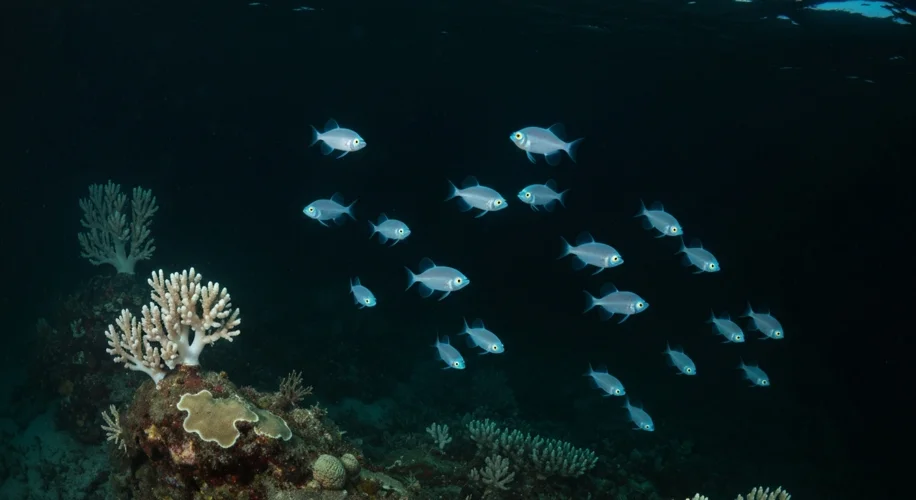Did you know that the ocean’s health is incredibly fragile? And right now, one of the smallest players might be signaling a massive problem for all of us. I’m talking about lanternfish.
Lanternfish are small, bioluminescent creatures that live in the deep ocean. While they might not be as glamorous as whales or as familiar as tuna, they are incredibly important. They form a massive part of the deep-sea food web, acting as a crucial link between the microscopic organisms at the bottom and the larger predators at the top. In fact, they are one of the most abundant vertebrates on Earth.
So, what’s the big deal with lanternfish? Well, scientists are raising alarms that these tiny fish are facing extinction. And the reason why is deeply connected to something we’re all talking about: climate change.
As our planet warms, our oceans absorb a lot of that excess heat. This warming leads to a decrease in dissolved oxygen levels in the water – a process called deoxygenation. Think of it like a soda going flat; as the water gets warmer, it can’t hold as much oxygen. This is happening faster in some parts of the ocean than others, creating ‘oxygen minimum zones’ or even ‘dead zones’ where life struggles to survive.
And here’s where lanternfish come in. These fish, like many deep-sea creatures, are sensitive to changes in their environment, especially oxygen levels. If they disappear, it’s not just their own story that ends. Their extinction could trigger a domino effect throughout the marine ecosystem.
Imagine a world where the food source for many larger fish, squid, and even some marine mammals dwindles. This collapse at the base of the food chain would have devastating consequences. It could lead to the decline of commercially important fish populations, impacting global food security and the livelihoods of millions who depend on the ocean for their survival.
This isn’t just a distant, abstract problem. It highlights how interconnected everything is. The decisions we make today about reducing greenhouse gas emissions and transitioning to cleaner energy sources have a direct impact on the health of our oceans and the delicate balance of marine life. It’s a stark reminder that even the smallest creatures play a vital role in the health of our planet.
It’s a challenge that requires our attention, a call to action to protect the vast, mysterious world beneath the waves. By understanding these connections, we can better advocate for the policies and actions needed to safeguard our oceans for generations to come.

